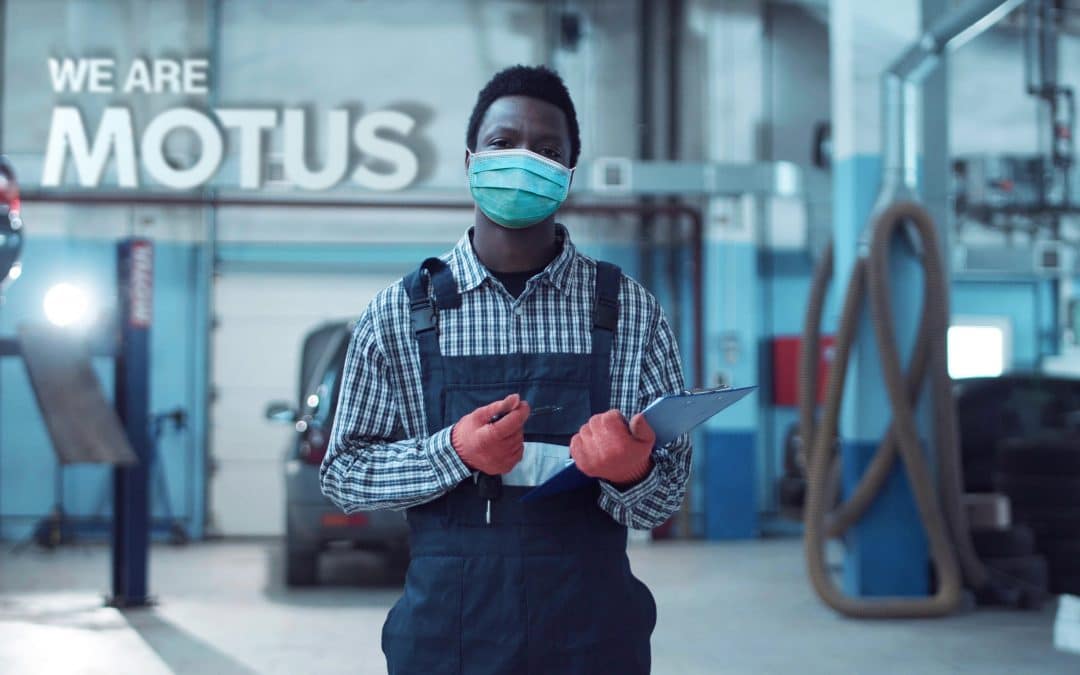As more South Africans return to work, Motus – South Africa’s largest automotive group – has seen a notable increase in service bookings in the past week. The seven-week lockdown, which restricted the majority of South Africans to their homes, resulted in servicing and repairs shrinking to just 1,16% of normal volume across the Motus dealership network.
Since the publication of specific conditions under which the automotive industry can perform routine servicing and maintenance (under Alert Level 4), many individuals have completed overdue services and safety critical maintenance.
“It’s a misnomer that service intervals are purely a factor of mileage. Many vehicles, based on OEM prescriptions, require mileage and time-based servicing,” says Osman Arbee, CEO, Motus. “It’s promising to see customers taking active steps towards ensuring their vehicles are serviced and properly maintained now that the lockdown restrictions have eased. However, I would like to remind the motoring public to ensure that a service is conducted in good time to avoid any inconvenience.”
A backlog of 19% of the car parc had been created by the nationwide lockdown, in terms of meeting critical safety checks and servicing to ensure the optimal vehicle performance. As more motorists return to work, in line with the with the gradual easing of lockdown restrictions, throughput in workshops is expected to increase.
Motus dealerships have taken the necessary precautions to accommodate staff and customers amidst Covid-19. In addition, a critical part of our return to normal operations was to ensure that our own fleets – across new and pre-owned dealership floors nationally – were brought up to date in terms of maintenance after being parked throughout the lockdown.
Vehicles and their components are engineered for regular use. Maintenance is critical, and if neglected could result in material and permanent damage to the vehicle. Known issue include brakes rusting and binding to discs, causing discs to warp when used after long periods of disuse. Similarly, calliper pins can corrode, making brake performance sub-optimal. This could lead to serious injury when braking in an emergency. Furthermore, most of the fluids in a vehicle (engine oil and brake fluid) break down and lose their ability to lubricate. Aluminium engines require constant lubrication, and after standing idle can cause engine scoring and, in some cases, warpage. Gear boxes also need constant lubrication.
Other potential problems include electrical faults (especially the interior electricals such as electric windows and seats), as well as ineffective cooling from air-conditioners which will need to be recharged. These issues will arise even if the battery has been disconnected.
In the absence of scheduled, routine servicing, customers can still perform basic vehicle health checks at home. However, routine servicing should not be delayed when it becomes due. “A car is not only most people’s second most valuable asset, but it also facilitates easier and safer access to jobs,” adds Arbee. “While almost every manufacturer has measures in place to protect warranties and the vehicle’s resale value, it does not change the fact that vehicles need services and maintenance despite not travelling significant distances. For optimal use, it is critical for routine vehicle servicing to take place to prevent costly breakdowns further down the line.”


